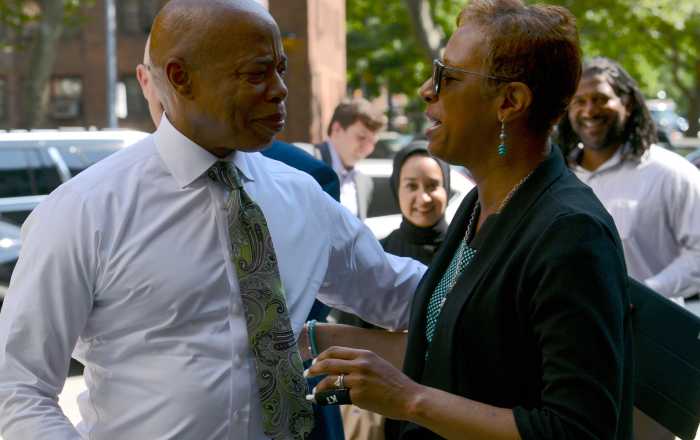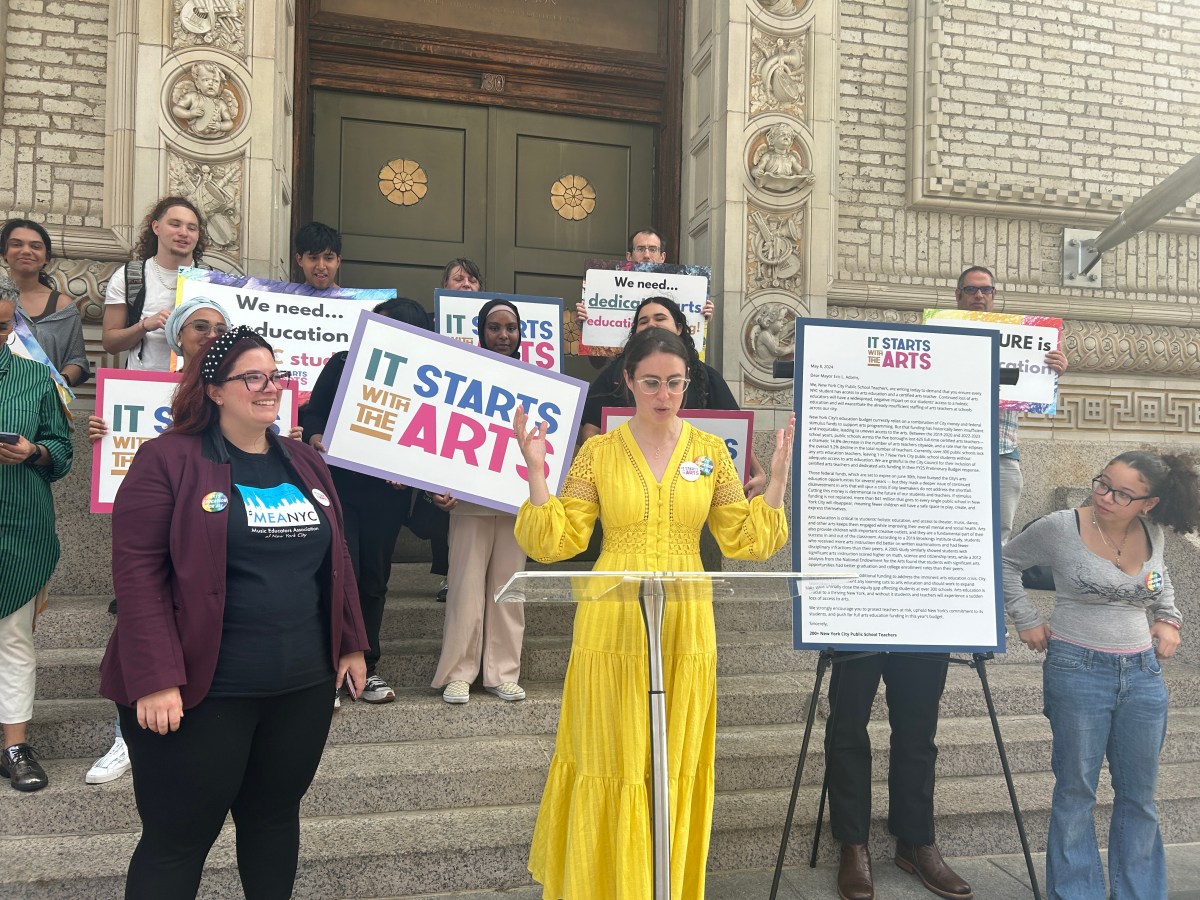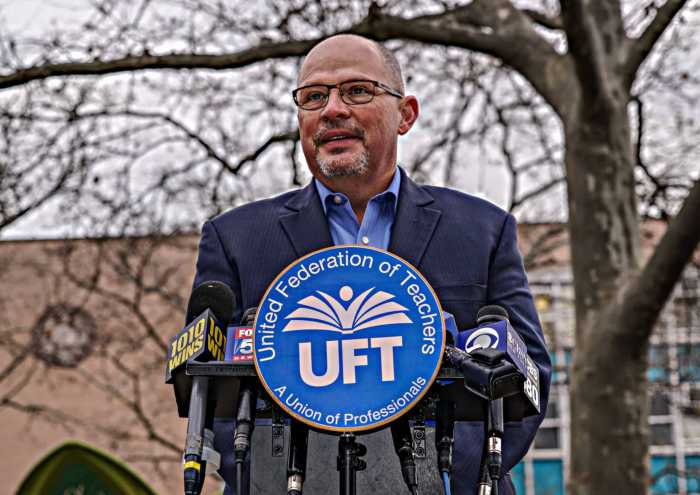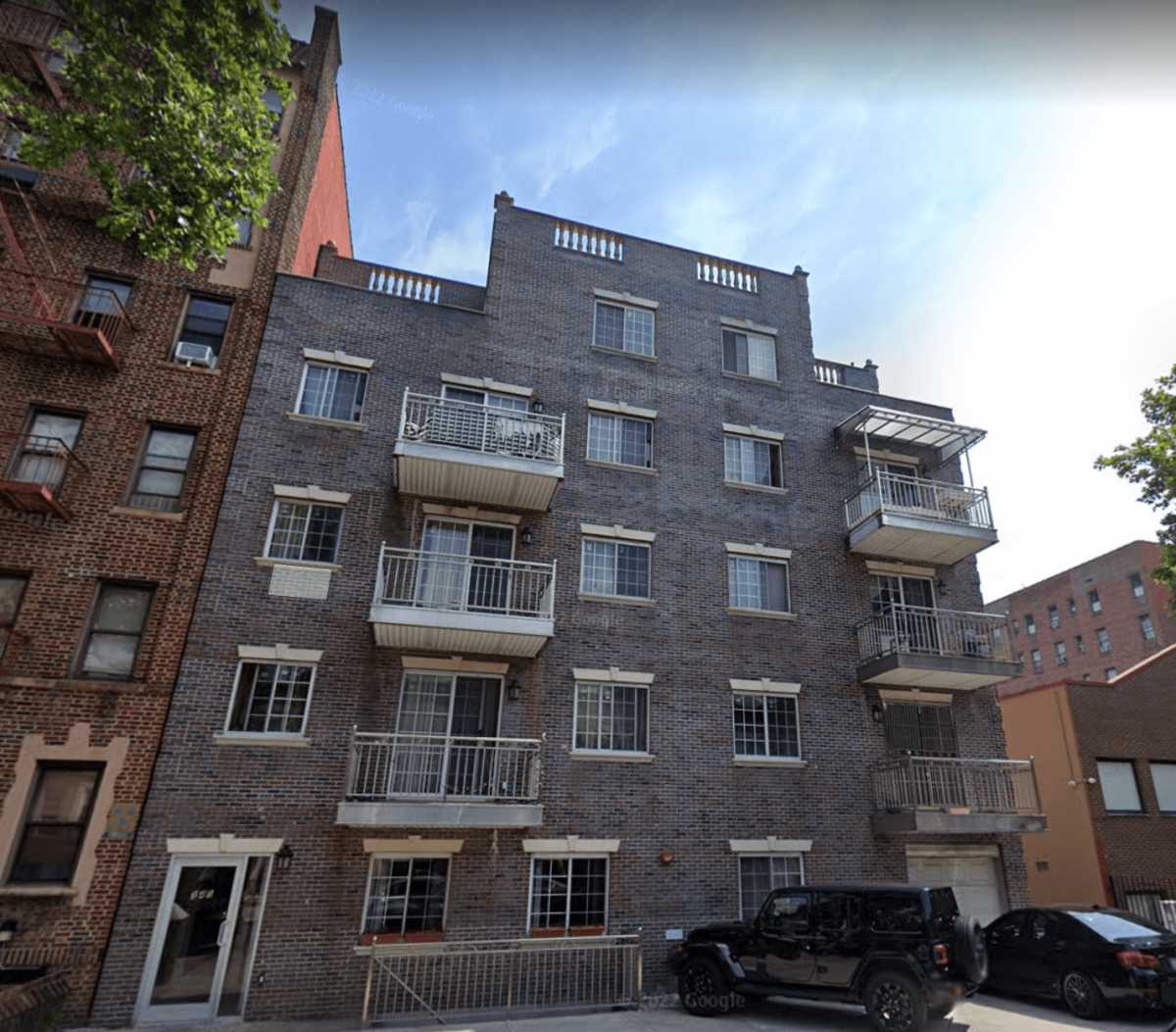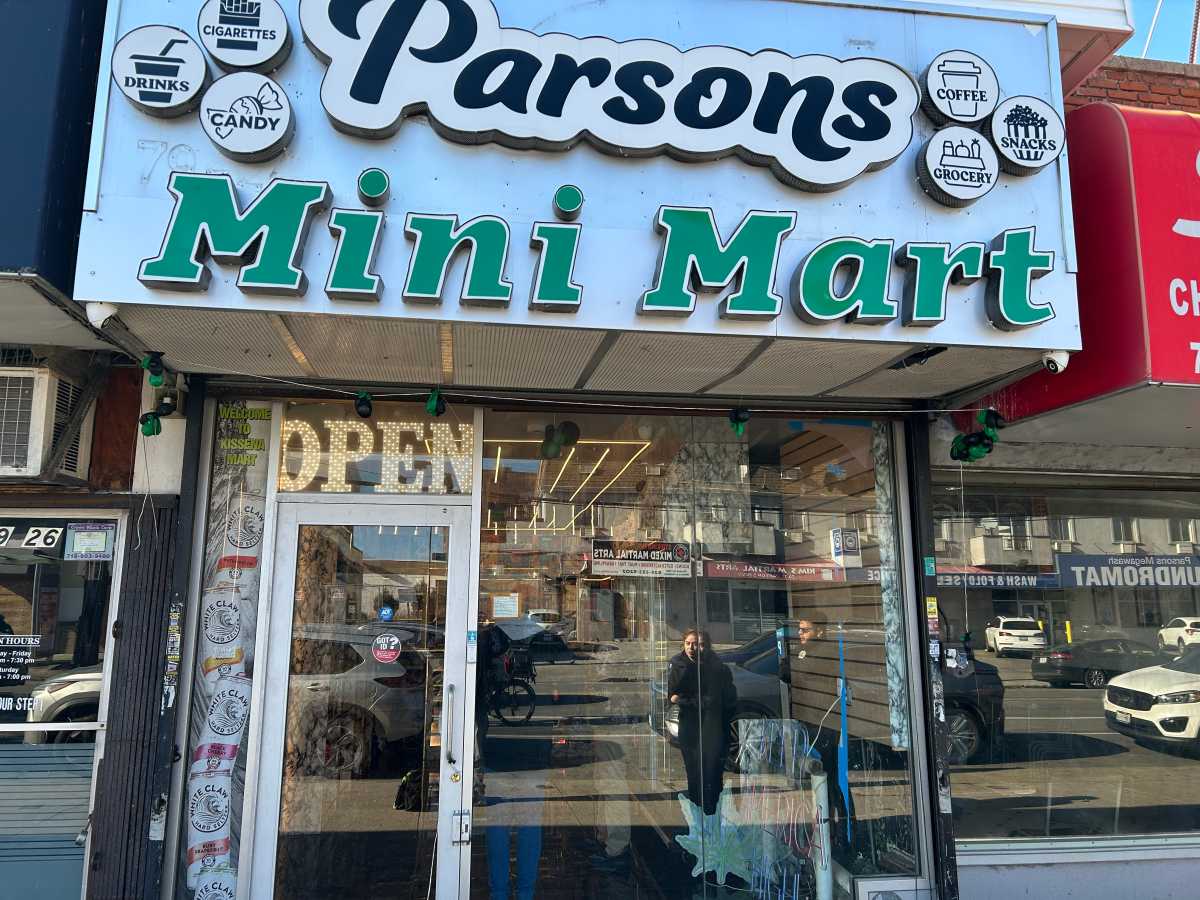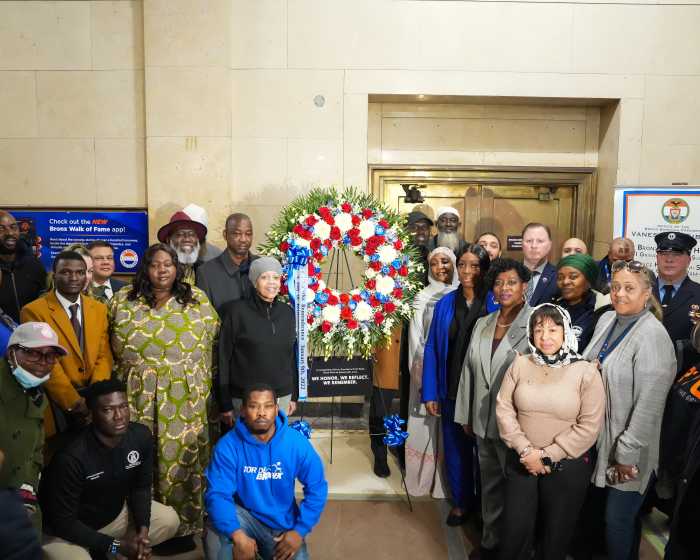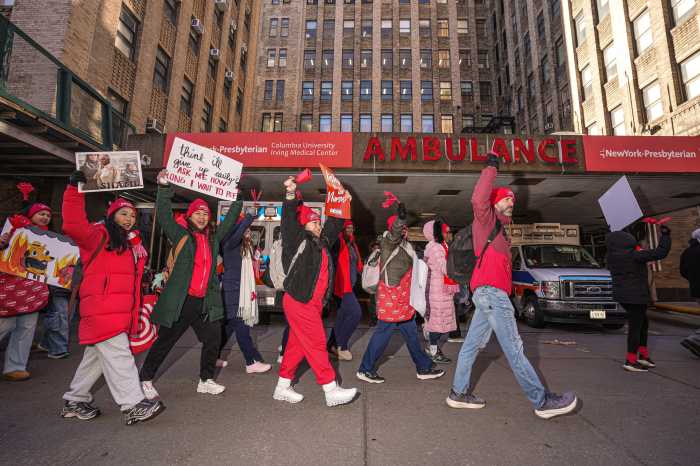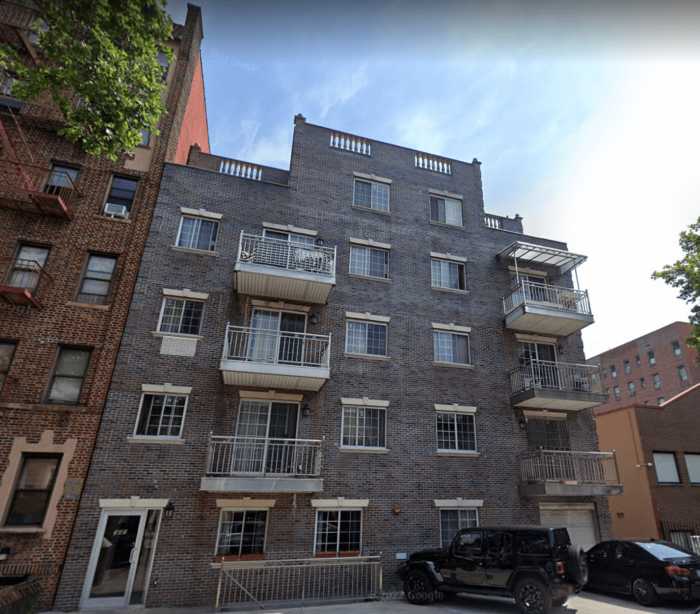A New York City school panel approved a contract earlier this week that aims to boost school security through the installation of a front door locking system.
The contract was approved by the city’s Panel for Educational at a meeting Wednesday, with Schools Chancellor David Banks and the New York City education department’s School Security Director present.
The roughly $43 million contract calls for the installation of an automatic door-locking system — along with cameras — in all public school buildings. The system, according to the contractor Symbrant Technologies, aims to protect students from outside threats in an effort to make NYC public school children safer. Funding will come from the DOE’s capital budget.
The door-locking system was included in Mayor Eric Adam’s preliminary 2023-2024 budget, with $78 million allocated for the system.
A pilot program for the door-locking and camera system was announced for six public schools in each of the boroughs last September. The system, which is an initiative of Mayor Eric Adams and Schools Chancellor David Banks, will now be installed in the city’s roughly 1,850 public schools.
“The proposed system will add an additional layer of security to ensure student safety,” said Jenna Lyle, a spokesperson for the DOE. “Currently, every one of our public schools keeps every door locked and alarmed, except the front door, which is staffed by NYPD School Safety Agents.”
Some PEP members were concerned that the system would be challenging for hearing-impaired or non-English speakers. Others wanted to know whether people would be prevented from running inside the school buildings to safety should a violent episode take place outside.
These concerns were in contrast to the people who were adamant about the need for additional security.
Banks, who heard these concerns, suggested postponing the vote in order for PEP members to gather more information. He expressed his disappointment that there wasn’t greater support for the system, given people’s fear of school mass shootings.
“I’ve heard from the unions, all of these folks in schools, saying you have to lock the front door,” Banks said. “Any person who’s out of their mind or intends to do harm, once the school opens, they can walk right in the door.”
Sheree Gibson, the Queens representative for the PEP, said at the meeting that she first learned about the mayor’s plan to pilot the door-locking systems during a press conference last September. But she said what’s missing now is the data and results of that pilot program.
“Where is the information and the data saying that this is working, and how it’s working,” Gibson said. “I’m just not seeing where that was done, to say this is worth $78 million.”
Roughly 1,300 schools could see door-locking systems over the next year with this new contract.
Gregory Faulkner, a PEP member who chairs the Contracts Committee, tried to address fears about the system, noting that the system will constantly be under review.
“It doesn’t get into implemented immediately,” Faulkner said. “We could have those conversations about how to make it work in various communities.”
Robert Quintana, principal of PS 28Q in Corona, Queens spoke for his union, the Council of School supervisors and administrators, which urged the PEP to approve the plan. He believes that these “common-sense measures will certainly strengthen our first line of defense to keeping our school community safe.”
Quintana said the issue was personal to him, and referred to an incident that occurred last September as parents were picking their children up when an “intruder” ran into the building. Both Quintana and a school safety agent were able to stop him until police arrived. He said two days later, the city rose to the occasion and fitted the school’s front doors with a lock and a buzzer system allowing school safety officers to monitor and record visitors.
Said Quintana: “I have been fortunate enough to have a pilot of this system for nearly four months and can say firsthand that the greatest benefit that this offers is time.
PEP member Ephraim Zakry said he is “all for security” but even though he called the device “easy to use, simple, and works pretty well,” he had several concerns.
“What are the chances that this might be counterproductive?” Zakry said. “Let me give a hypothetical example: What happens if there’s an incident outside the school? If we have these doors locked, students couldn’t get back into the school to shelter there.”
As an ESL in bilingual school communities and teacher of spoken languages, PEP member Jessamyn Lee pointed out the potential struggles that people who are hearing-impaired or non-English speakers could have when confronting the security doors.
“I wonder about the ADA compliance of this,” Lee said. “I think about one of my children’s classmate’s parent who is profoundly deaf and communicates only through ASL. I wonder how an intercom system is functional for a person who’s hearing impaired? I wonder about our multilingual community.”
Thomas Sheppard, vice chairperson of PEP, shared his concerns with the current security measures at his children’s schools in the Bronx. He suggested that the PEP table the matter for an additional month so that the Department of Education can explain the system in more detail to PEP members and school communities.
“We’ve had issues where folks act as gatekeepers,” Sheppard said. “So you have parents that may have some serious concerns about what’s happening with their children inside of schools. These systems get arranged so that there are layers between parents with concerns and those who are there to actually answer questions.”
Mark Rampersant, the DOE’s Security Director, acknowledged that some PEP members felt rushed to take a vote on the contract, but that he didn’t hear any objections about the technology.
“The good thing is I’m not hearing any real objection to the device itself, or objection to us having a security system that can add to add to the layers of safety and security that we’re putting in place to support our school community,” Rampersant said. “We hear from parents on a daily basis they want the doors locked, they want more school safety agents. We are listening to all of these conversations and hearing from both sides. We assure you that engagement will transpire as we go forward.”
Read more: Uptown Manhattan Students Rally Against Violence After Attack




